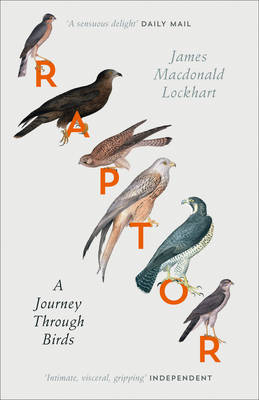 As a birder and particularly a lover of all things raptor, a book with the title ‘Raptor’ would always catch my fancy. The cover promises that it is ‘a journey through birds’, and displays some beautiful imagery of some of the birds of prey that the United Kingdom has to offer. I was hooked on the spot and decided to buy this book.
As a birder and particularly a lover of all things raptor, a book with the title ‘Raptor’ would always catch my fancy. The cover promises that it is ‘a journey through birds’, and displays some beautiful imagery of some of the birds of prey that the United Kingdom has to offer. I was hooked on the spot and decided to buy this book.
Reading the book does not disappoint. It sounds like quite a daunting task: describing all fifteen nesting raptors in the UK. The book is set up brilliantly for it. James Macdonald Lockhart starts his journey all the way up in Orkney, and travels through the UK searching for each individual raptor species. Each chapter is dedicated to one particular species, and Macdonald Lockhart does a lot more than just tell us about the bird. He tells us about the landscape and the relationship the raptor has to that landscape. He tells us about the history of the relationship between raptors and humans, and how this has developed in recent years. This can sometimes be a bit depressing, as humans and their actions have brought so many of Britain’s raptor species to the brink of extinction. There is room for optimism, too: humans are also involved in the return of species like the red kite, the buzzard and the osprey, with many initiatives to protect them throughout the UK.
While reading each chapter, you feel like you’re right there birding with him, and you feel like you’ve become part of the bird’s life. The amount of knowledge in this book is astounding, and I have already been able to use some of the acquired knowledge during my own birdwatching.
This book is also a love letter to the late Scottish naturalist and ornithologist William MacGillivray, who in 1819 set out for a walk from Aberdeen to London to visit the British Museum at the age of 23. On this journey he kept a diary, and there are many fragments from this diary included in ‘Raptor’. MacGillivray was a fantastic observer of all things wildlife and plants, and his notes really add an extra layer to the book. Sadly, MacGillivray never really got the recognition Macdonald Lockhart successfully claims he deserves, and as a reader you do wonder why you have never seen his name before, especially as a birder. ‘Raptor’ also features some of the watercolours MacGillivray made during his life, which are now apparently hidden in storage at the Natural History Museum and are never seen by anyone. I for one would love to see his watercolours, and am determined to get myself a copy of his most famous work ‘A History of British Birds’. MacGillivray intended for the watercolours to be included in this book, but didn’t have the money to make this happen. However, his descriptions of these birds are so vivid that you don’t actually need to see it at all. This is a rare gift, and I can only hope that other readers of ‘Raptor’ will join me in trying to get more attention to his work.
Even for people who are not generally fond of raptors there is a lot to enjoy in this book. It’s beautiful prose, and any book that is written by someone with a clear passion about the topic will draw you in regardless of whether you are actually as passionate about the topic yourself. Warmly recommended.
Title: Raptor
Author: James Macdonald Lockhart
ISBN: 9780007459896
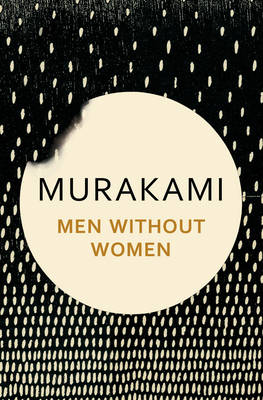 One of the things that define Murakami’s stories is that it’s very hard to tell someone afterwards what they are about. I have tried many times to explain it, but I never quite succeed in getting everything across, and always feel like I fail to do him the justice he deserves. Yet I feel that the impossibility to retell his stories is part of what makes them so great. In a way, not a lot happens. It’s usually about the interaction between the characters more than about what happens to them. That is not to say that there is no character development. The characters do develop, though some more than others.
One of the things that define Murakami’s stories is that it’s very hard to tell someone afterwards what they are about. I have tried many times to explain it, but I never quite succeed in getting everything across, and always feel like I fail to do him the justice he deserves. Yet I feel that the impossibility to retell his stories is part of what makes them so great. In a way, not a lot happens. It’s usually about the interaction between the characters more than about what happens to them. That is not to say that there is no character development. The characters do develop, though some more than others.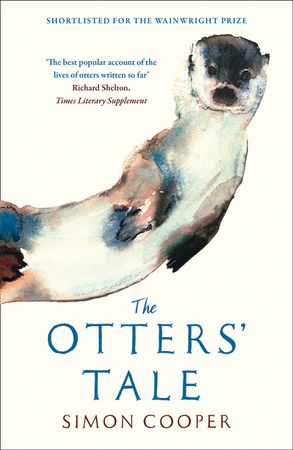 As the saying goes, you shouldn’t judge a book by its cover. Yet, it was the cover of The Otters’ Tale by Simon Cooper that drew me towards it, featuring a beautiful watercolour painting of a curious otter by Mark Adlington. As someone who loves nature writing and has a lifelong wish of seeing an otter, I knew this was one of those books I had to read. I felt that it might shed some light on the life of an animal I knew very little about, except for the fact that I wanted to see one more than anything.
As the saying goes, you shouldn’t judge a book by its cover. Yet, it was the cover of The Otters’ Tale by Simon Cooper that drew me towards it, featuring a beautiful watercolour painting of a curious otter by Mark Adlington. As someone who loves nature writing and has a lifelong wish of seeing an otter, I knew this was one of those books I had to read. I felt that it might shed some light on the life of an animal I knew very little about, except for the fact that I wanted to see one more than anything.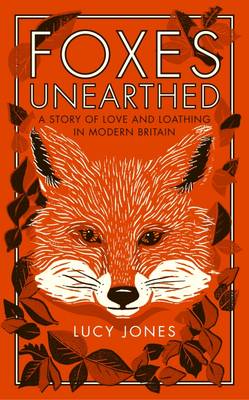 Why is Britain so different in this aspect? Although Jones does not answer all the questions that I have, as she focuses purely on Britain and not on other country’s attitudes towards foxes, she sets out on a bold description of all the reasons why British people either love or hate foxes, and either love the hunt or hate the hunt. She talks to all the parties involved. Scientists who have studied the behaviour of foxes, farmers who fear for their lifestock, hunters who genuinely think that what they’re doing is the right thing, hunt saboteurs who are convinced that foxes are still being killed every weekend across the country, they all get their say on the matter. It is truly marvellous to read, and although I am strongly opposed to fox hunting as it used to be in Britain and the book did not change my mind, it made me more aware of other people’s opinions and more importantly why they would have these opinions. Foxes unearthed really is the kind of book that makes you think for a moment, and really enlightens you on different viewpoint on the same topic.
Why is Britain so different in this aspect? Although Jones does not answer all the questions that I have, as she focuses purely on Britain and not on other country’s attitudes towards foxes, she sets out on a bold description of all the reasons why British people either love or hate foxes, and either love the hunt or hate the hunt. She talks to all the parties involved. Scientists who have studied the behaviour of foxes, farmers who fear for their lifestock, hunters who genuinely think that what they’re doing is the right thing, hunt saboteurs who are convinced that foxes are still being killed every weekend across the country, they all get their say on the matter. It is truly marvellous to read, and although I am strongly opposed to fox hunting as it used to be in Britain and the book did not change my mind, it made me more aware of other people’s opinions and more importantly why they would have these opinions. Foxes unearthed really is the kind of book that makes you think for a moment, and really enlightens you on different viewpoint on the same topic.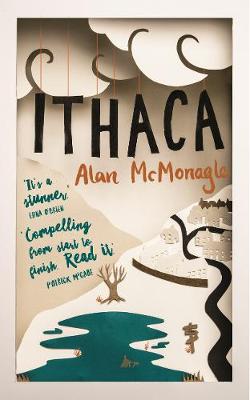 With this girl, who remains unnamed throughout the novel, Jason finds himself on strange adventures, where he paints graffiti with disturbing messages on houses in the neighbourhood and hangs out with her around the Swamp at the outskirts of town. The girl seems self-destructive, tries to seduce him to touch her at intimate spots, and threatens to hurt herself if Jason doesn’t do something she wants. It becomes very clear that this relationship is not necessarily a healthy one.
With this girl, who remains unnamed throughout the novel, Jason finds himself on strange adventures, where he paints graffiti with disturbing messages on houses in the neighbourhood and hangs out with her around the Swamp at the outskirts of town. The girl seems self-destructive, tries to seduce him to touch her at intimate spots, and threatens to hurt herself if Jason doesn’t do something she wants. It becomes very clear that this relationship is not necessarily a healthy one.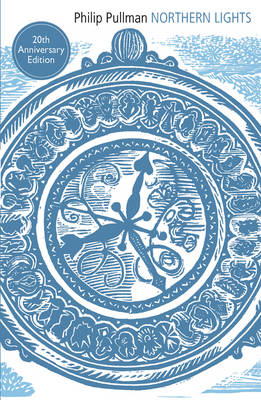 I have to (kind of shamefully) admit that I’m not entirely convinced, which probably becomes clear from the incredible difficulty I’m having in giving even a small summary. I took the book with me on holiday, and I basically couldn’t get through the first 150 pages. I didn’t really care about any of the characters or any of the mystery that is created (and there is a lot of that!). I started one of the others books I took with me on holiday instead, and only picked up Northern Lights again upon my return to Wales. I nearly abadoned it altogether. I can now safely say that I’m glad I didn’t, but also that the book never really got a hold over me.
I have to (kind of shamefully) admit that I’m not entirely convinced, which probably becomes clear from the incredible difficulty I’m having in giving even a small summary. I took the book with me on holiday, and I basically couldn’t get through the first 150 pages. I didn’t really care about any of the characters or any of the mystery that is created (and there is a lot of that!). I started one of the others books I took with me on holiday instead, and only picked up Northern Lights again upon my return to Wales. I nearly abadoned it altogether. I can now safely say that I’m glad I didn’t, but also that the book never really got a hold over me.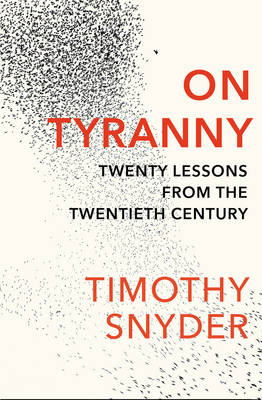 His expertise does not disappoint. Each lesson, ranging from speaking out on topics and causes you care about to not looking the other way when things become strange and potentially dangerous, is timely and important. You could say that some lessons seem obvious, but are they really? The entire world keeps repeating that we should never make the same mistakes from the twentieth century again, yet here we are in a situation that is frighteningly similar to what happened in both the Third Reich and the Soviet Union. Leave it to Timothy Snyder to draw the comparisons that may seem obvious to some, but are ignored by too many.
His expertise does not disappoint. Each lesson, ranging from speaking out on topics and causes you care about to not looking the other way when things become strange and potentially dangerous, is timely and important. You could say that some lessons seem obvious, but are they really? The entire world keeps repeating that we should never make the same mistakes from the twentieth century again, yet here we are in a situation that is frighteningly similar to what happened in both the Third Reich and the Soviet Union. Leave it to Timothy Snyder to draw the comparisons that may seem obvious to some, but are ignored by too many.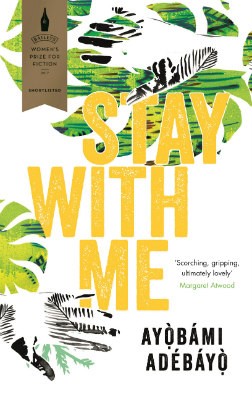 feelings are about children and his second wife. The biggest surprises in the novel come from his storyline. As much as Yejide is struggling, Akin is struggling just as much. The only difference is that Yejide is scrutinised in public for her struggles, whereas Akin struggles alone, without anyone, including Yejide at first, noticing. Akin’s private struggles turn out to be the main force behind everything that happens in their lives, and as they become less private, there is no telling whether Yejide and Akin can overcome all that is coming their way.
feelings are about children and his second wife. The biggest surprises in the novel come from his storyline. As much as Yejide is struggling, Akin is struggling just as much. The only difference is that Yejide is scrutinised in public for her struggles, whereas Akin struggles alone, without anyone, including Yejide at first, noticing. Akin’s private struggles turn out to be the main force behind everything that happens in their lives, and as they become less private, there is no telling whether Yejide and Akin can overcome all that is coming their way.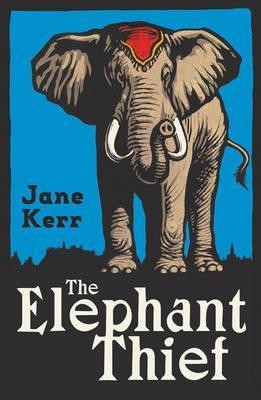 One day, Boy finds himself at an auction where he somehow manages to buy an elephant, Maharajah the Magnificent, on behalf of Mr Jameson, the owner of the Belle Vue menagerie in Manchester. Mr Jameson immediately has plans for Boy, and decides to turn him into Prince Dandip of Delhi (or Danny for the people around him). Mr Jameson’s plans do not stop here. He agrees to a bet with Mr Albright, another menagerie owner from Leeds, that Maharajah can walk from Edinburgh to Manchester within seven days. If they don’t make it, Mr Albright will get all the animals from the Belle Vue, including Maharajah himself. The Elephant Race, as it is soon named, is joined by Sandev (Maharajah’s carer), Mr Crimple (an employee of the Belle Vue), and Mr Saddleworth (a vet) and his daughter Henrietta (Hetty). Danny is to ride the elephant throughout the race. Mr Jameson wants to draw as much attention as possible to the race in order to draw people to his menagerie, but what price does one have to pay for this amount of attention?
One day, Boy finds himself at an auction where he somehow manages to buy an elephant, Maharajah the Magnificent, on behalf of Mr Jameson, the owner of the Belle Vue menagerie in Manchester. Mr Jameson immediately has plans for Boy, and decides to turn him into Prince Dandip of Delhi (or Danny for the people around him). Mr Jameson’s plans do not stop here. He agrees to a bet with Mr Albright, another menagerie owner from Leeds, that Maharajah can walk from Edinburgh to Manchester within seven days. If they don’t make it, Mr Albright will get all the animals from the Belle Vue, including Maharajah himself. The Elephant Race, as it is soon named, is joined by Sandev (Maharajah’s carer), Mr Crimple (an employee of the Belle Vue), and Mr Saddleworth (a vet) and his daughter Henrietta (Hetty). Danny is to ride the elephant throughout the race. Mr Jameson wants to draw as much attention as possible to the race in order to draw people to his menagerie, but what price does one have to pay for this amount of attention?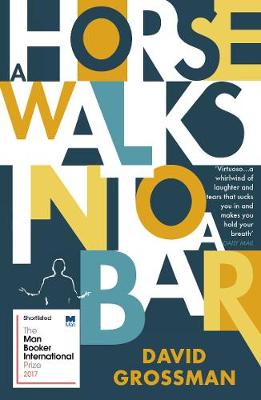 This year’s Man Booker International prize winner was announced last Wednesday, and to me, it wasn’t a surprise that it went to David Grossman’s ‘A horse walks into a bar’ (translated by Jessica Cohen). As soon as I saw the shortlist announcement a couple of months ago, this is the book that stood out to me the most as something unlike anything I had ever read. Having finished it, I can honestly say that it is just that.
This year’s Man Booker International prize winner was announced last Wednesday, and to me, it wasn’t a surprise that it went to David Grossman’s ‘A horse walks into a bar’ (translated by Jessica Cohen). As soon as I saw the shortlist announcement a couple of months ago, this is the book that stood out to me the most as something unlike anything I had ever read. Having finished it, I can honestly say that it is just that.